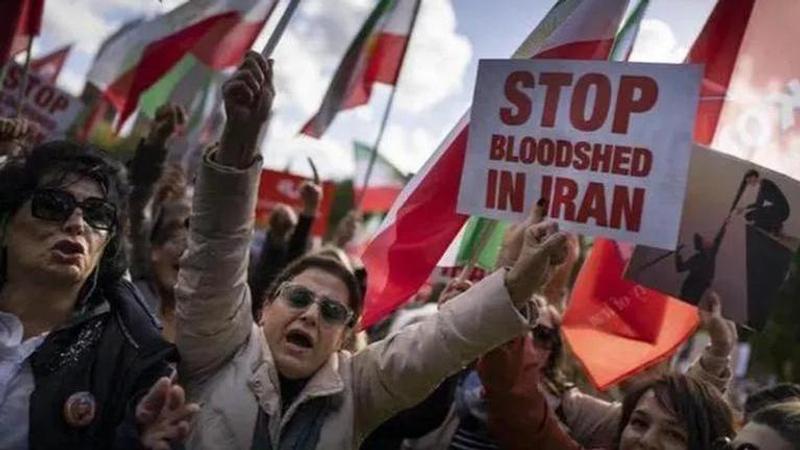Published 17:14 IST, January 10th 2023
Iran sentences 3 more protestors to death for participating in anti-regime demonstrations
Iran's judiciary has sentenced three men, Saleh Mir-Hashemi, Majid Kazemi, and Saeed Yaghoubi, to death for their alleged role in shooting govt. agents.

Iran's judiciary has sentenced three more men, Saleh Mir-Hashemi, Majid Kazemi, and Saeed Yaghoubi, to death for "war against God" for their alleged role in the shooting of three government agents during a day of protests in the Khane-ye Esfahan neighborhood on November 16, as per a report by Iran International. The verdicts were based on confessions made in the absence of lawyers appointed by the accused and are subject to appeal, but in previous cases involving protesters, the appeal process has not overturned verdicts in what many believe to be sham trials. Another defendant, Amir Nasr-Azadani, a footballer, was sentenced to 21 years in prison on charges of "aiding in the war against God" and "assembly and collusion leading to security-related crimes".
In 2019, Mazyar Ebrahimi, a businessman, disclosed how he was tortured non-stop for 40 days by the intelligence ministry to admit spying for Israel and assassinating Iranian nuclear scientists between 2010 and 2012. Ebrahimi's confessions were broadcast by the state broadcaster, but he later recanted, saying they were made under torture and duress. In a rare incident, Ebrahimi and others were exonerated when the rival IRGC intelligence found discrepancies in the testimonies fabricated by the intelligence ministry. The case highlights the lack of due process in these trials, as the accused were not given the opportunity to appoint lawyers of their own choosing.
Are the trials in Iran fair?
Prominent human rights lawyer Nasrin Sotoudeh said in a Facebook post that the "right to freely choose a lawyer is one of the most important reasons for the faultiness of these [death and prison] sentences", adding that the hasty executions are "sheer murder" by the lack of due process. Hosseini's lawyer, Ali Sharifzadeh-Ardakani, who was only allowed to represent him after the trial, said that the judiciary carried out the executions so hastily that they had no time for taking any legal action in these cases. The Islamic Republic has so far hanged four protesters, Mohsen Mirshekari in Tehran and Majidreza Rahnavard in Mashhad on December 12, and Mohammad-Mehdi Karami and Seyed Mohammad Hosseini in Karaj on Saturday.
The lawyers of these two men, Mohammad Aghasi and Ali Sharifzadeh-Ardakani, also said that their clients were executed so quickly that they didn't even have a chance to write a petition for a retrial. The recent death sentences and executions have sparked outrage among human rights activists and international organizations. The U.N. High Commissioner for Human Rights has also expressed concern over the recent executions and the lack of due process in the trials, calling on the Iranian authorities to uphold the rights of all defendants to a fair trial. Meanwhile, Oslo-based Iran Human Rights Organization has said that 109 people in Iran are facing the risk of execution.
Updated 17:14 IST, January 10th 2023




